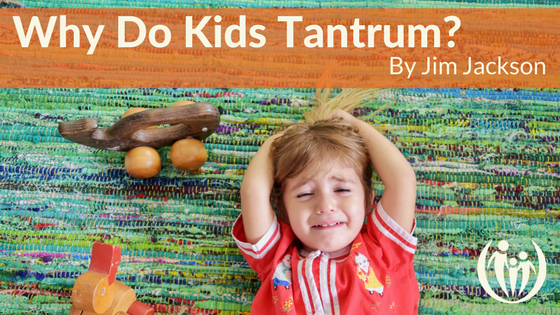
Why Do Kids Tantrum?

Simply stated, kids have tantrums because they pay off. In some convoluted sort of way they get what they want. Even if it means they lose their cool and wear themselves out. The challenge for a parent is determining what exactly a child might need in the midst of an all-out emotional outburst. What they want may not be what it appears at face value to be. For example, even if the flailing tantrum at the store does not get them the object of the tantrum, the child is still likely meeting a need for intense attention, for power, and for control. So if a child is lacking good attention, or feels out of control, a tantrum might be just the thing the child needs in order to get some attention or feel in control.
A Child’s Perspective on Tantrums:
Think about it from the child’s perspective. A tantrum is predictable. When people feel out of control, predictability can feel stabilizing. So in a strange sort of way, throwing a tantrum and being predictably handled may feel safe. While the parental perspective might be, “This kid is totally out of control,” the kid’s perspective may be, “Well, at least I know there’s one thing I can do to get some control.”
A Parent’s Challenge:
The parent’s challenge in all this is to work toward making a child feel safe while also being more graceful and constructive. In another strange sort of way, when kids learn to expect grace (not to be confused with getting the object of their tantrum) when they meltdown, their tantrums tend to be less energized.
So when your kids tantrum…
- Calm down. Take a deep breath, say a prayer, or recite a memorized scripture. Keep doing this until you can…
- Speak softly. Speak to your child from a heart of love, not a heart of control.
- Ask questions. Calmly ask your child what they need to settle down.
- If you child still won’t settle, then calmly tell them you’ll be there when they’re ready to settle down.
Download our FREE in-depth ebook Helping Kids With Anger. It will provide thoughtful insights and creative ideas to help your struggling child.

